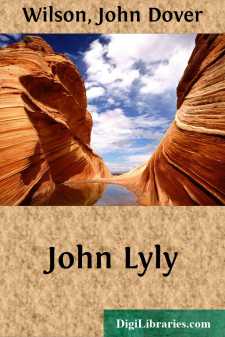Categories
- Antiques & Collectibles 13
- Architecture 36
- Art 48
- Bibles 22
- Biography & Autobiography 815
- Body, Mind & Spirit 144
- Business & Economics 28
- Children's Books 18
- Children's Fiction 14
- Computers 4
- Cooking 94
- Crafts & Hobbies 4
- Drama 346
- Education 58
- Family & Relationships 59
- Fiction 11834
- Games 19
- Gardening 17
- Health & Fitness 34
- History 1378
- House & Home 1
- Humor 147
- Juvenile Fiction 1873
- Juvenile Nonfiction 202
- Language Arts & Disciplines 89
- Law 16
- Literary Collections 686
- Literary Criticism 179
- Mathematics 13
- Medical 41
- Music 40
- Nature 179
- Non-Classifiable 1768
- Performing Arts 7
- Periodicals 1453
- Philosophy 65
- Photography 2
- Poetry 896
- Political Science 203
- Psychology 44
- Reference 154
- Religion 515
- Science 126
- Self-Help 85
- Social Science 82
- Sports & Recreation 34
- Study Aids 3
- Technology & Engineering 59
- Transportation 23
- Travel 463
- True Crime 29
Our website is made possible by displaying online advertisements to our visitors.
Please consider supporting us by disabling your ad blocker.
John Lyly
Categories:
Description:
Excerpt
PREFACE.
The following treatise was awarded the Harness Prize at Cambridge in 1904. I have, however, revised it since then, and in some matters considerably enlarged it.
A list of the chief authorities to whom I am indebted will be found at the end of the book, but it is fitting that I should here make particular mention of my obligations to the exhaustive work of Mr Bond. Not only have his labours of research and collation lightened the task for me, and for any future student of Lyly, to an incalculable extent, but the various introductory essays scattered up and down his volumes are full of invaluable suggestions.
This book was unfortunately nearing its completion before I was able to avail myself of Mr Martin Hume's . But, though I might have added more had his book been accessible earlier, I was glad to find that his conclusions left the main theory of my chapter on Euphuism untouched.
Much as has been written upon John Lyly, no previous critic has attempted to cover the whole ground, and to sum up in a brief and convenient form the three main literary problems which centre round his name. My solution of these problems may be faulty in detail, but it will I hope be of service to Elizabethan students to have them presented in a single volume and from a single point of view. Furthermore, when I undertook this study, I found several points which seemed to demand closer attention than they had hitherto received. It appeared to me that the last word had not been said even upon the subject of Euphuism, although that topic has usurped the lion's share of critical treatment. And again, while Lyly's claims as a novelist are acknowledged on all hands, I felt that a clear statement of his exact position in the history of our novel was still needed. Finally, inasmuch as the personality of an author is always more fascinating to me than his writings, I determined to attempt to throw some light, however fitful and uncertain, upon the man Lyly himself. The attempt was not entirely fruitless, for it led to the interesting discovery that the fully-developed euphuism was not the creation of Lyly, or Pettie, or indeed of any one individual, but of a circle of young Oxford men which included Gosson, Watson, Hakluyt, and possibly many others.
I have to thank Mr J. R. Collins and Mr J. N. Frazer, the one for help in revision, and the other for assistance in Spanish. But my chief debt of gratitude is due to Dr Ward, the Master of Peterhouse, who has twice read through this book at different stages of its construction. The readiness with which he has put his great learning at my disposal, his kindly interest, and frequent encouragement have been of the very greatest help in a task which was undertaken and completed under pressure of other work.
As the full titles of authorities used are to be found in the list at the end, I have referred to works in the footnotes simply by the name of their author, while in quoting from I have throughout employed Prof....


